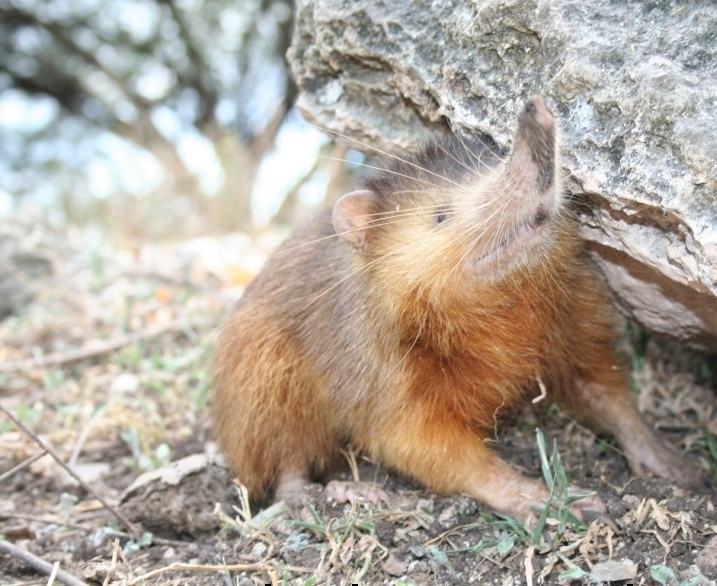How the cute, furry and highly venomous Solenodon survived extinction against all odds
These distinctive Caribbean mammals are a lot tougher than they look.

A series of devastating small-scale extinctions in the Caribbean over the past 7,000 years didn't quash all of the islands' unique wildlife – the primitive solenodon was almost unique in surviving them all, scientists have found.
Solenodons have seen it all. The large shrew-like creatures survived the terror of the dinosaur era. They survived the devastating asteroid that wiped out 75% of species on Earth 66 million years ago, including the dinosaurs.
They are almost unique among Caribbean mammals, not just for their snake-like venomous bite. They are also an incredibly resilient species, surviving what almost no others could, according to research presented at a meeting of the Society of Vertebrate Paleontology in Alberta, Canada.
Scientists at Stanford University in the US gathered data on 7,000 years of cohabitation of humans and other creatures of the Caribbean islands. The analysis of fossil bones showed there had been several waves of extinctions of mammals linked to human activity.
"By piecing together the radiocarbon record, our analysis makes it clear that people had a hand in Caribbean extinctions — both before and after Columbus' arrival," said Siobhan Cooke, one of the researchers involved in the project.
It wasn't just the arrival of Christopher Columbus in the Americas in 1492 that had an impact. The earlier arrival of indigenous humans to the islands also wiped out many of the endemic species of the Caribbean.
These extinctions, coupled with the introduction of agricultural animals from regions such as Europe, fundamentally transformed the face of Caribbean wildlife.
"The Caribbean is now full of introduced mammals – cows, pigs, rats, dogs – that look nothing like the original fauna," said Alexis Mychajliw, lead researcher of the study.
"Are they doing similar things ecologically, or have we created an entirely different dynamic? And where do the remaining native mammals fit in this new ecosystem?"
But there was one survivor that showed a particular ability to stick out the human disturbance.
"Looking at solenodons today, you might think of them as a strange relictual creature that, like many ancient lineages, can't keep up with modern threats. But the recent fossil record tells a different story: the solenodon is a survivor, persisting when nearly every other mammal around it went extinct," Mychajliw said.
The solenodon's hardiness came from its penchant for eating virtually everything. Analysis of the poo of modern solenodons revealed that they could heat more or less whatever crossed their path.
The researchers hope to find out more about what makes solenodons so resilient to disaster and change by working with conservationists in the Caribbean to understand their habits and ecology.
© Copyright IBTimes 2025. All rights reserved.






















